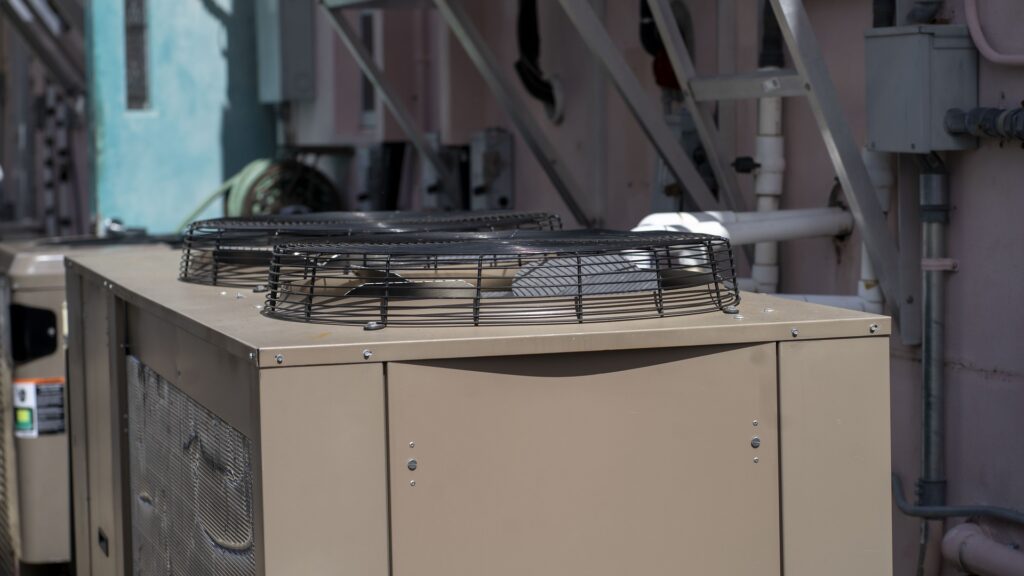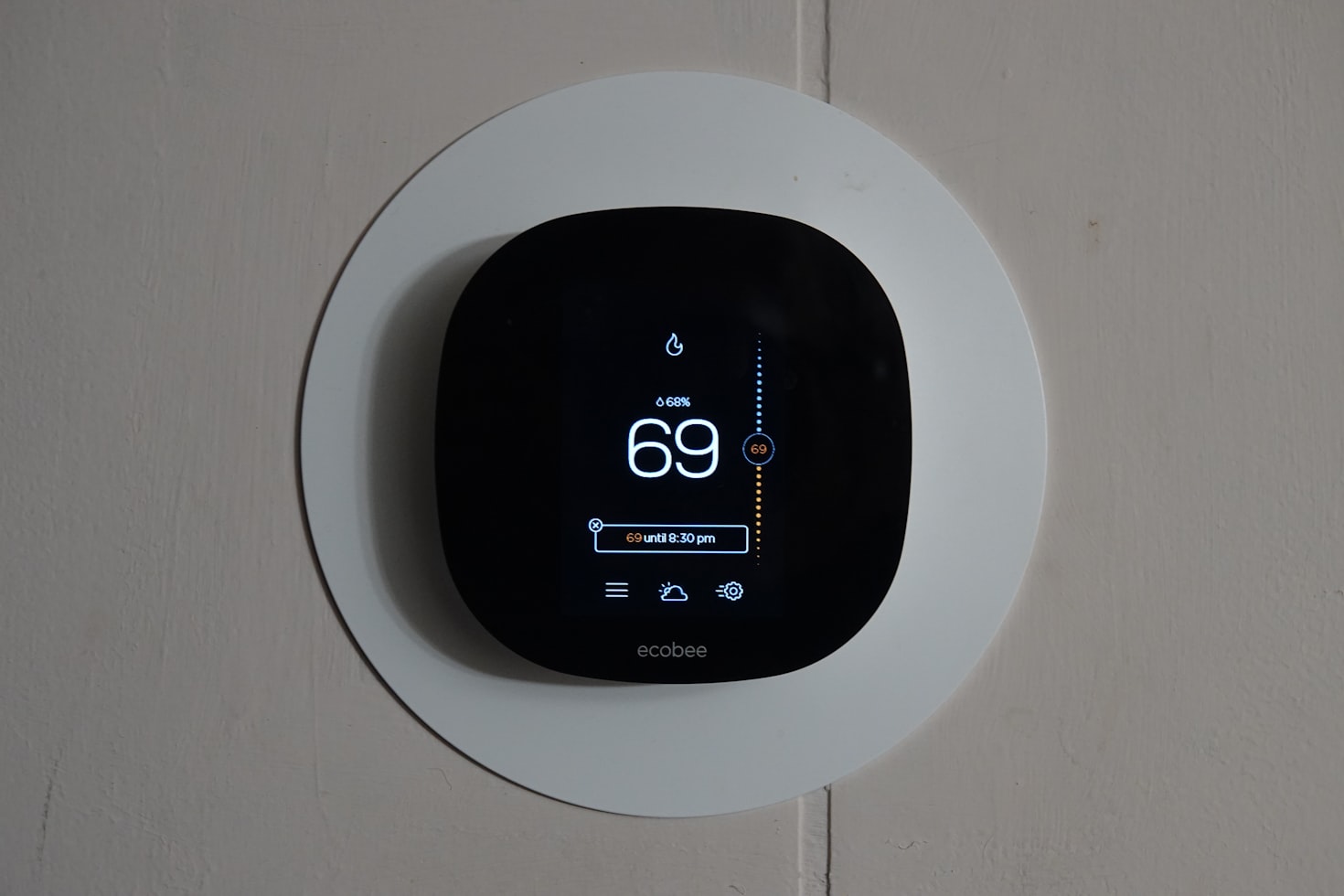
What should the humidity be in a house with air conditioning?
Spring is here, which means saying goodbye to snowfall and cold weather and welcoming sunshine and warmer temperatures. While springtime brings a much-needed reprieve for those of us in Chicagoland who are sick of ice and snow, it also means that our air conditioning units will be springing into action for the first time in months. Hopefully, those units will kick in just fine and provide the relief we need when things start to heat up, but if you’re noticing that things are feeling a little uncomfortable as summer approaches, humidity might be to blame.
Humidity is the amount of water vapor in the air, and while we may think that stepping into our homes on a hot day will immediately save us from oppressive heat and humidity, the truth is that our air conditioning units might not be capable of keeping the humidity levels in our homes under control. Most people will feel comfortable in a home that’s approximately 30%-50% humidity, but on days that are especially hot and humid, your air conditioning system might not be able to keep up.
How Does Air Conditioning Help With Humidity?

Our air conditioners might not work the way you think they do. After all, we might assume that the main job of an air conditioner is to increase the amount of cold, dry air in our homes. In fact, an air conditioner helps to achieve cooler temperatures by removing heat and humidity. You might be wondering how exactly that all works. Well, it’s largely due to an evaporator coil and a refrigerant, which play an important role in the function of your air conditioner.
The air inside your home passes through the ductwork in your house and over an evaporator coil that contains a refrigerant, commonly known as Freon or Puron. The refrigerant works by storing heat from the air, causing the moisture to cool and condense on the coil. The condensation then falls into a condensation pan under the evaporator coil and drains away. On especially humid days, you’ll probably notice a lot of water dripping out of your house near your air conditioning unit. The cooler and dehumidified air then blows back into your home.
While an air conditioning unit is a great way to reduce the humidity levels in your home, it can’t always keep up once the warmer summer months arrive and humidity levels skyrocket. When the humidity levels in your home are higher than normal, the air will feel too warm for comfort, and your unit will be doing a lot of extra work to try to keep up.
How Does Humidity Affect My Home?
As humidity levels outside continue to rise, it’s more important than ever that we make sure our air conditioning is working properly. If we don’t maintain an acceptable level of humidity inside our homes, it’s possible that the humidity levels could cause problems. While we might think that feeling uncomfortable is the worst part of high humidity levels, there are actually worse consequences. Here are some issues that you might encounter if the humidity levels in your home are too high:
Damage to Wood and Furniture
Wood is everywhere in our homes, and unfortunately, it’s also a material that’s very susceptible to damage from humidity. When humidity levels rise, it means that there’s more moisture in the air. More moisture also equates to more condensation, and when this condensation settles on wood in our homes, that’s what can cause damage. Over time, you may notice things made out of wood in your home, such as flooring, windowsills, doorframes, and furniture, start to warp. Why? Well, high humidity levels cause an increase in the expansion and contraction of your wood, which is what leads to warping.
Mold and Mildew
Mold and mildew thrive in moist environments. Even in a home with relatively normal humidity levels, you might notice small, black spots appearing on the walls or ceiling in areas with high moisture levels, such as bathrooms. If the humidity level of your home increases to above optimal levels, you’ll likely notice mold spores growing all over. Mold becomes an obvious problem when you can see spots forming on walls or ceilings or notice there’s a musty or foul smell throughout your home.
Increased Respiratory Problems
Just like mold, other harmful organisms, such as dust mites, fungi, and bacteria, love moist environments. When humidity levels in your home are high, you can expect to have a higher amount of these organisms in your home as well. If you’re prone to suffering from respiratory problems, such as allergies or asthma, you’re likely to experience a worsening of symptoms when humidity is high.
How Can I Help Control the Humidity in My Home?
The first step in controlling the humidity level in your home is to have your air conditioning unit serviced to make sure it’s working properly. If your unit is still not keeping up with the humidity level, you might consider installing a dehumidifier, which will work alongside your air conditioner to reduce the humidity in your home.
A whole-house dehumidifier works with your air conditioning unit to remove excess moisture from the air. Small things can help too. For example, you can keep your windows and doors closed as much as possible on humid days, wipe up any excess water that accumulates on shower tiles, countertops, or floors, and use an exhaust fan when showering.
The role that air conditioning plays in relation to the humidity levels of our home is just as important as its ability to keep us cool. High humidity levels not only affect our comfort while in our homes, but they can also negatively affect our home and health. If you’re in the Chicagoland area and have any questions about which air conditioning services are right for you, we’ll be happy to help you out. Contact us at Dahme Mechanical Industries to get your air conditioning unit serviced as soon as possible.
Photo Credit: Image by Sean D is licensed with Unsplash License
